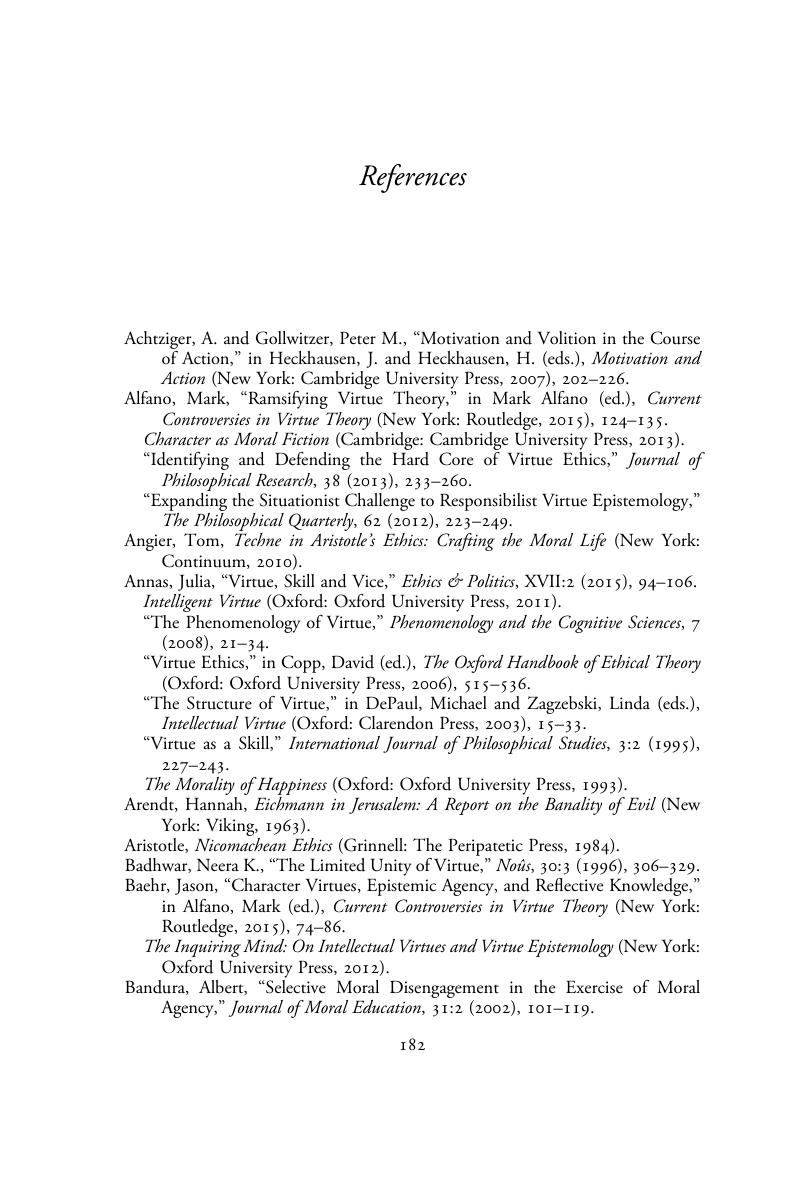Book contents
- The Skillfulness of Virtue
- The Skillfulness of Virtue
- Copyright page
- Dedication
- Contents
- Introduction
- Chapter 1 Self-Regulation and Expertise
- Chapter 2 Moral Virtues as Skills
- Chapter 3 Motivation in Skill and Virtue
- Chapter 4 Skills and Practical Wisdom
- Chapter 5 The Situationist Critique of Virtue
- References
- Index
- References
References
Published online by Cambridge University Press: 22 September 2018
- The Skillfulness of Virtue
- The Skillfulness of Virtue
- Copyright page
- Dedication
- Contents
- Introduction
- Chapter 1 Self-Regulation and Expertise
- Chapter 2 Moral Virtues as Skills
- Chapter 3 Motivation in Skill and Virtue
- Chapter 4 Skills and Practical Wisdom
- Chapter 5 The Situationist Critique of Virtue
- References
- Index
- References
Summary

- Type
- Chapter
- Information
- The Skillfulness of VirtueImproving our Moral and Epistemic Lives, pp. 182 - 194Publisher: Cambridge University PressPrint publication year: 2018



